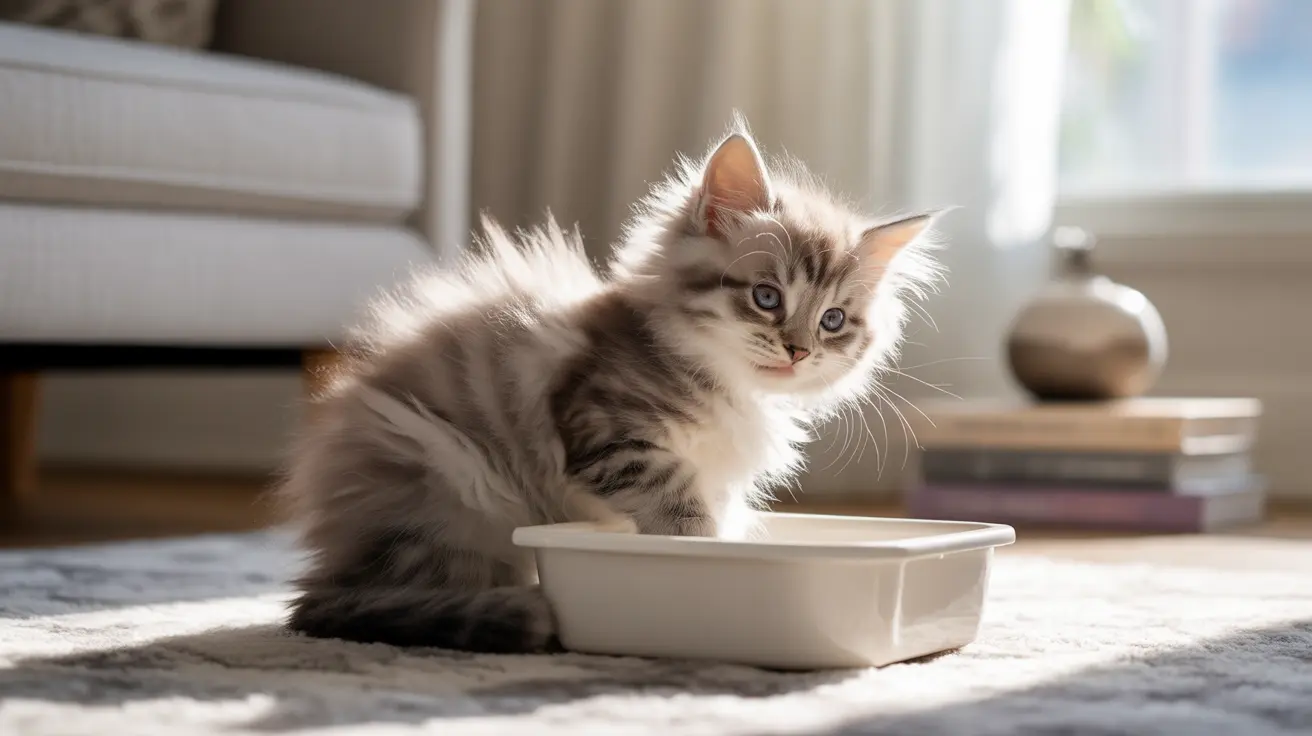Common Causes of Kitten Constipation
Several factors can contribute to a kitten not pooping regularly:
Dietary Issues
The most common cause of constipation in kittens is diet-related problems. Feeding exclusively dry food, insufficient water intake, or sudden dietary changes can lead to difficult bowel movements. Kittens need adequate moisture and fiber in their diet to maintain healthy digestion.
Medical Conditions
Underlying health issues such as intestinal parasites, congenital abnormalities, or neurological problems can affect your kitten's ability to defecate normally. These conditions require veterinary diagnosis and treatment.
Recognizing the Signs of Constipation
Watch for these key indicators that your kitten might be constipated:
- Straining in the litter box without producing stool
- No bowel movements for 24-48 hours
- Hard, dry, or small feces
- Decreased appetite and lethargy
- Crying or showing signs of discomfort
- Abdominal bloating or tenderness
Effective Home Remedies and Treatments
Hydration Support
Ensuring proper hydration is crucial for preventing and treating constipation. Consider these strategies:
- Provide fresh, clean water in multiple locations
- Switch to wet food or add water to dry food
- Use a pet water fountain to encourage drinking
- Consider flavor-enhanced water (pet-safe broths)
Dietary Adjustments
Making appropriate dietary changes can help resolve constipation:
- Add fiber-rich foods like plain canned pumpkin (1/4-1/2 teaspoon per meal)
- Switch to a high-moisture diet
- Include probiotic supplements (with veterinary approval)
- Ensure age-appropriate nutrition
When to Seek Veterinary Care
While some cases of constipation can be managed at home, certain situations require immediate veterinary attention:
- Complete absence of bowel movements for more than 48 hours
- Signs of severe pain or distress
- Vomiting or complete loss of appetite
- Lethargy or weakness
- Visible rectal prolapse
- Blood in or around the anal area
Frequently Asked Questions
Why is my kitten not pooping and how can I tell if it's constipation?
A kitten is likely constipated if they haven't had a bowel movement in 24-48 hours, strain in the litter box, or produce hard, dry stools. Other signs include decreased appetite, lethargy, and visible discomfort while trying to defecate.
What home remedies can help a kitten that is constipated?
Effective home remedies include increasing water intake, adding fiber-rich foods like plain canned pumpkin, switching to wet food, and gentle belly massage. However, always consult your vet before trying any new treatments.
When should I take my kitten to the vet for constipation?
Seek veterinary care if your kitten hasn't pooped for more than 48 hours, shows signs of pain or distress, stops eating, becomes lethargic, or has symptoms like vomiting or rectal prolapse.
How can diet and hydration affect a kitten's bowel movements?
Diet and hydration play crucial roles in maintaining healthy bowel movements. A diet high in moisture and appropriate fiber content, combined with adequate water intake, helps prevent constipation and promotes regular bowel movements.
What are the risks if kitten constipation is left untreated?
Untreated constipation can lead to serious complications including megacolon, rectal prolapse, dehydration, and severe pain. In extreme cases, it can cause life-threatening conditions requiring emergency intervention.
Prevention Tips and Long-term Management
To help prevent future episodes of constipation:
- Maintain consistent feeding schedules
- Ensure plenty of fresh water is always available
- Keep the litter box clean and accessible
- Monitor bowel movements regularly
- Schedule routine veterinary check-ups
- Provide appropriate exercise and playtime
Remember that prevention is always better than treatment when it comes to kitten constipation. By maintaining proper nutrition, hydration, and monitoring your kitten's bathroom habits, you can help ensure their digestive health remains optimal.






